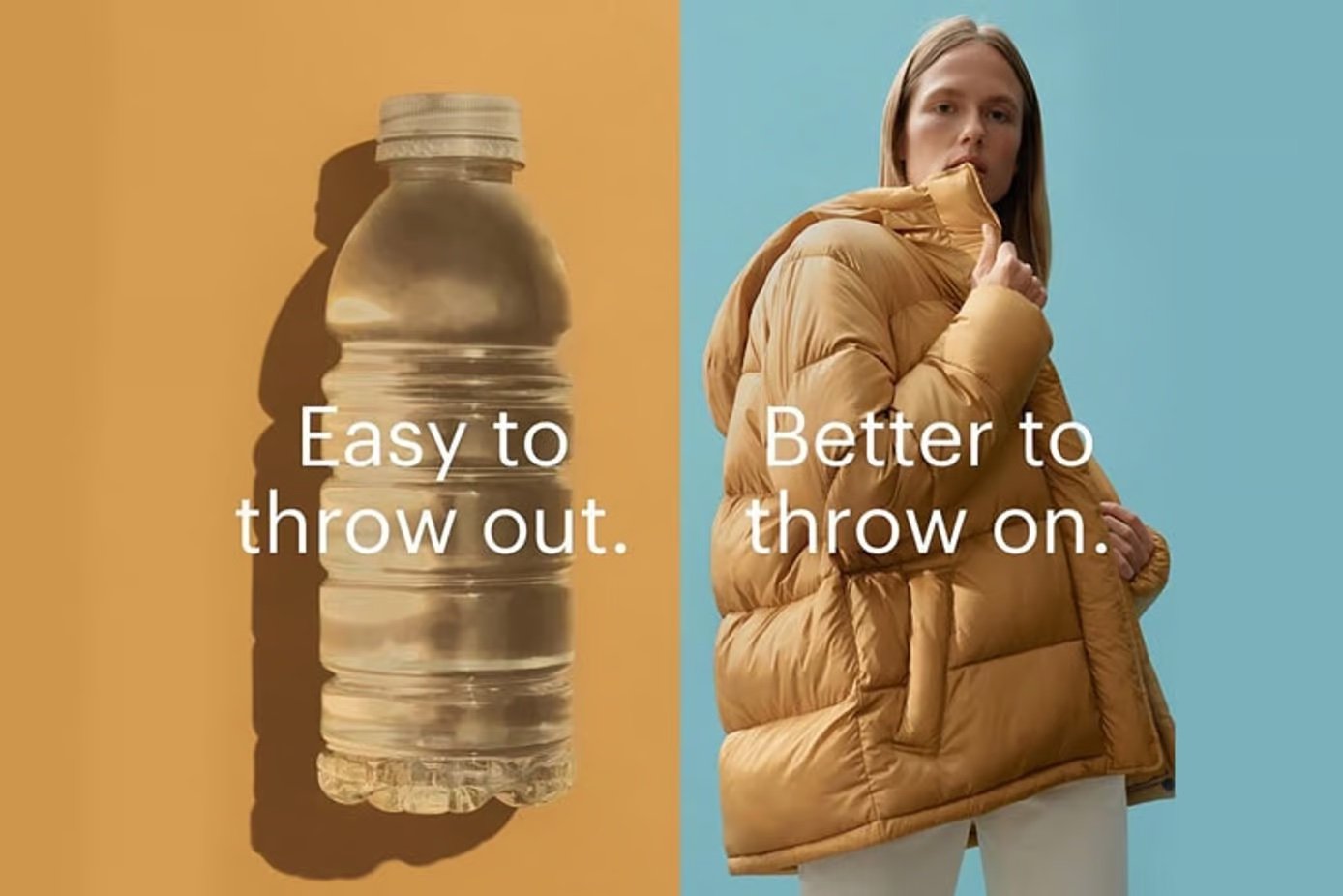In recent years, the fashion industry has come under a lot of scrutiny for its environmental impact. No surprise for readers here; we’ve been discussing this endlessly on this blog. It is clear that there needs to be other options for virgin polyester, cotton and other materials. This blog is going to focus on recycled polyester.
Shutterstock image curtesy of PFI Fareast
Recycled materials are often referred to as upcycled or repurposed materials. They are made from pre-existing materials that have been diverted from landfill and given a second life. These include anything from recycled polyester made from plastic bottles or reclaimed/repurposed denim or leather. One of the main benefits of using recycled materials in fashion is the reduction of waste by diverting materials from landfills and giving them a new purpose. The fashion industry has been pressured to reduce its impact on the environment; therefore, recycled polyester has become the go-to, as it addresses a number of sustainability metrics, including energy GHGs and not using virgin materials. It also creates a great awareness of the importance of a shift to a circular economy instead of a linear model. From “take, make and waste” to a circular economy. Brands aim to minimise waste and make the most of existing resources to help close the loop and contribute to a more sustainable and regenerative system.
Image curtesy of The Sustainable Fashion Collective
Polyester is widely used in the fashion industry, but it is a dirty material. It’s a petroleum derivative, and “it can be 168 days without ironing and still look presentable”. That was how it was advertised when it was invented in 1941.
Recently, recycled polyester has become very popular, especially during the past ten years. This has coincided with the rise of fast fashion brands, as it is easy, very durable and low cost. This fabric is a more sustainable and eco-friendly version widely used in fast fashion. Recycled polyester, also known as rPET, is a textile made from recycled plastic bottles. It has been created as an alternative to virgin polyester. It addresses the sustainability challenges but not the eco solution to virgin polyester.
There are downsides. Nothing is ever that straightforward and simple. There are key drawbacks which we will address here.
MISLEADING or GREENWASHING
Recycled polyester, also known as rPet, is a textile made from recycled plastic bottles. It is an alternative to traditional polyester, but that is as sustainable as it gets - overall, it is not particularly environmentally friendly. It’s still one of the most used materials in clothing, and why is that? Probably because it’s cheap and easy to us.NOT REALLY CIRCULAR
Recycled polyester has a reduced quality, making it less strong. It can also often smell and is still somewhat condoning the use of crude oil-based processes and materials. It uses plastic bottles, which are transformed into polyester, which is good as the bottles do not need to go into landfill. However, this involves a lot of manual processing and washing. Also, making fibres for fabrics ends the ability to be recycled again as the polyester is often mixed or blended with other materials to make it suitable for making clothes (Lycra, nylon, elastane). It ceases being a mono-fibre. Separating materials in fashion fabrics is very expensive and in limited supply.VERIFICATION (is it really recycled).
There is also a supply issue with plastic bottles, but we don’t ever really know as some suppliers are buying new bottles to use in the manufacturing of rPet.MICROPLASTICS
The age-old issue of microplastic release still exists as the polyester continues to be washed. The garments will still shed microplastics, which, obviously, is very harmful to the environment and human and animal life.
Image curtesy of Fashion United
So, let’s look at it again: is recycled polyester a step in the right direction? It creates awareness about fashion at end of life and about the benefits of recycling. The most sustainable option would be to buy close secondhand. However, if you are going to buy something new and you are going to buy polyester, it’s definitely better to buy recycled than virgin.
As always, have fun, love life, and enjoy fashion.
Kate xx


